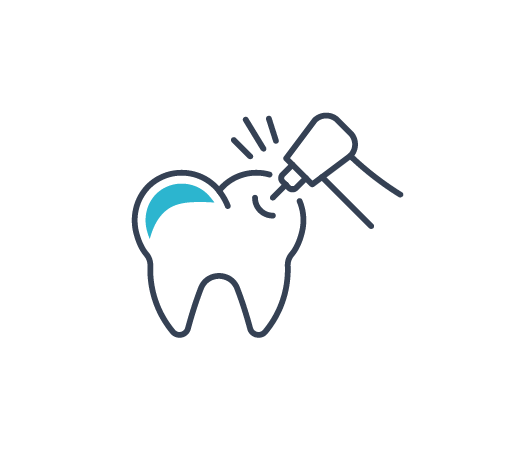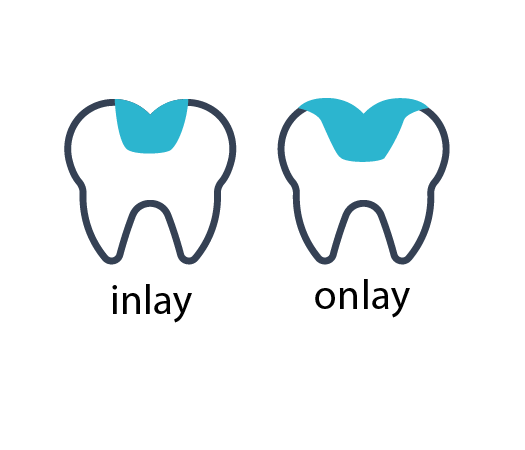At TimberView Family Dentistry, we offer a wide range of restorative options. If you have a broken or missing tooth, one of the following treatments will help prevent further oral health issues. Our team uses the latest technology to get you back on track.

We offer many options that blend long-lasting strength with attractiveness in our modern dentistry. We have both a tooth-colored (composite resin) and an amalgam (silver) filling option. Some choose the white composite fillings because they cosmetically blend with the adjacent tooth much better than amalgam fillings. But, there are additional advantages and disadvantages of each option that Dr. Storm will discuss further with you.

A crown is a long-lasting cap placed over the entire surface of your tooth to restore its shape, size, and or appearance. A crown is needed when the structure of the tooth is weak or decreased in mass due to a previous filling or cavity, or the shape of the mouth needs to be changed. Crowns are used to protect your natural tooth underneath or to protect a tooth with a root canal, and can improve a tooth’s overall appearance. At TimberView Family Dentistry, we offer aesthetically pleasing porcelain or gold options you can review prior to your treatment.

A root canal is necessary when a tooth becomes infected, abscessed, severely decayed or injured, or a nerve is damaged. Symptoms of a tooth needing a root canal include painful chewing, heat/cold sensitivity, tooth discoloration, gum swelling or tenderness, or asymptomatic, in which a dental exam will discover it. If you are experiencing any of the following symptoms or want a check-up to be sure, schedule an appointment with the TimberView team. At our dental office, we have many technological advancements that allow you to have a comfortable experience even when having a root canal. A root canal is a far less expensive and time-consuming procedure than the alternative – having the tooth extracted and replaced with a bridge, implant, or partial denture.

An inlay or onlay is often the recommended repair when chewing surfaces of back teeth have damage due to decay, breaks, fractures, or when old fillings need replacing – but the tooth is not damaged enough for a crown. Inlays and Onlays are highly durable, long-lasting, and typically require less tooth removal than silver fillings and crowns. The main difference between the two is that onlays fill in the cavities while covering a larger area that includes the cusps. We offer custom-made inlays and onlays made of composite materials (gentle, prone to more wear and discoloration), gold (strongest, most expensive, not-natural looking), or tooth-colored porcelain (most natural-looking, wear well). Schedule an appointment today, and we can help you make the best decision for your budget and mouth.

An excellent option for missing teeth are dental implants. Dental implants are titanium posts that fit into the jaw bone, creating a foundation for synthetic teeth. Dental implants can anchor a partial or complete denture, replace a single tooth or a few teeth, and preserve bone structure. Each synthetic tooth is custom-made to match the unique shape and color of your teeth. A specialist places the implants, and the restorations are complete in our Midwest City office.

Dentures and partials effectively replace missing teeth, and in many cases, they will enable patients to eat, speak, smile, and live a more normal life. People of all ages who have lost teeth due to injury or disease replace their missing teeth with dentures or partials. Dentures and partials are the two main varieties. We offer traditional dentures that hold in with suction alone, have the option to add two to four implants for a denture that snaps in and out, or have a full denture that is fixed to the implants that the patient does not remove at home. TimberView Family Dentistry uses the latest technology to create dentures and partials that look natural and feel comfortable.

A complete set of functional teeth is critical to your dental and oral health, speech, appearance, and self-confidence. If you are missing one or more teeth, chewing becomes challenging, and you’re more susceptible to gum disease and speech disorders. A bridge replaces missing teeth with natural-looking, artificial teeth. There are fixed and removable bridges, both of which attach the artificial teeth to the adjoining healthy teeth with crowns. A fixed bridge is permanently secured to the adjacent teeth and cannot be removed. A dental bridge is an excellent method for replacing missing teeth. A bridge can help maintain the shape of your face by supporting your cheeks and lips as well as distributing chewing forces evenly and reducing forces placed on adjacent teeth.
